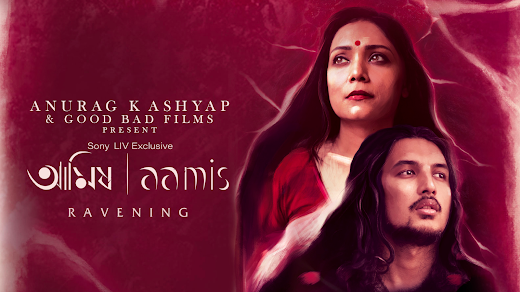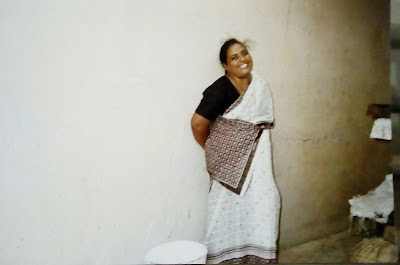A Dual Eulogy to Love in Later Life: 'Pookkaalam' vs. 'Pranayam
In the realm of Malayalam cinema, where romance is often depicted with youthful spirits, "Pranayam" and "Pookkaalam" emerge as rare gems and stand as testaments to the enduring power of love in old age. While many films focus on the euphoria of love's beginning, these two films dare to explore what happens after 'happily ever after.'
In "Pookkaalam," the world is painted in warm, inviting colors that brighten every frame, and a backdrop of feel-good music that never seems to end. Here, tears are more likely to flow from joy than sorrow. Ganesh Raj's signature style shines through, just as it did in his debut film, "Aanandam." Set during a betrothal function, the film transcends a festive atmosphere, where family interactions and quirky dynamics come to the forefront. The narrative unfolds amidst laughter, tears, and smiles, highlighting the range of emotions that define familial relationships.
In contrast, Director Blessy's "Pranayam" opts for a more intimate and restrained backdrop. The characters in this film are largely confined to apartments, reflecting a sense of isolation and introspection. The narrative takes place in a bustling city, where the central characters are boxed within their individual spaces, creating a contemplative atmosphere.
"Pookkaalam" is a tale of a couple, Ittoop (Vijayaraghavan) and Kochuthresia (KPAC Leela), who are on the cusp of celebrating their eighty years of marriage and the betrothal of their granddaughter, Elsy (Annu Antony). However, a decades-old letter surfaces, threatening to overshadow the joyous occasion and unearthing long-buried family secrets. The freshness of the theme is the film's driving force, and Ganesh, who also penned the script, handles it with finesse. He keeps the story firmly within the feel-good zone, avoiding the temptation to delve into darker territory. It's a choice that pays off, transforming what could have been a heart-wrenching tale in less capable hands into a heartwarming family drama.
On the contrary, set against the backdrop of a bustling city, "Pranayam" introduces us to Achyutha Menon (Anupam Kher), a genial man in his 60s living with his daughter-in-law and granddaughter. The story truly begins when Achyuthan's past resurfaces in the form of Grace (Jaya Prada), his estranged wife. Grace's elegance and timeless beauty leave an enduring mark, instantly capturing the hearts of viewers.
A chance encounter in an elevator triggers a whirlwind of emotions between them, culminating in Achyuthan's sudden collapse. As destiny brings them together, we witness the depth of their relationship through Grace's genuine concern for Achyuthan's well-being. The hospital scenes and her subsequent visit to his apartment hint at a history filled with love, regret, and unspoken words.
"Pookkaalam" predominantly explores the heartwarming relationship between Ittoop and Kochuthresia, set against the backdrop of their extended family. It occasionally delves into their early days, revealing the struggles and personal losses that have shaped their family dynamics. The crisis forces them to confront uncomfortable truths, reminding us that those who appear mild and composed in their later years may have hidden tumultuous pasts.
In Pranayam, Mathews (Mohanlal), Grace's husband and a former English professor adds a fascinating layer to this narrative. Despite being confined to a wheelchair, Mathews exudes so much warmth and wisdom, his unwavering devotion to Grace evident in every interaction. Their love has evolved over time, growing stronger with each passing day. Mathews' ability to understand even the slightest change in Grace's expressions speaks volumes about their connection. Despite the history of hurt and misunderstandings that still linger, Mathews' perceptive and compassionate nature, acknowledges Achyuthan's enduring love for Grace. Surprisingly, instead of resentment, a quiet friendship develops between the two men, with Grace caught in the middle.
"Pookkaalam" celebrates the rediscovery of truth and the resilience of love even in the twilight years. The film navigates through serious and comical moments with finesse, striking a balance between emotional depth and lightheartedness.
"Pranayam" on the other hand, challenges societal norms, portraying a unique relationship that defies judgment and conventionality. It beautifully portrays the characters' capacity for forgiveness, understanding, and acceptance, despite their history of pain and betrayal.
In essence, "Pookkaalam" is a heartwarming journey of rediscovery and the enduring bonds of family. It's a reminder that, in the end, it's the love and laughter we share that truly matter. "Pranayam" reminds us that love transcends the superficial, delving into the complexities of long-term relationships. It challenges the notion that love loses its luster with time, portraying Mathews and Grace's enduring affection as a beacon of hope. Their unwavering love and mutual respect serve as a poignant reminder that every relationship requires time, nurturing, understanding, and the ability to let go.
Ultimately, these two films are the most profound love stories in Malayalam cinema. While both "Pookkaalam" and "Pranayam" explore love in old age, they do so through distinct lenses, offering audiences contrasting yet equally compelling narratives. It's complex, intense, and occasionally messy, mirroring the complexities of real-life relationships.
















Comments
Post a Comment